A Wonder Woman fan film that blazed across the Internet this week has women everywhere cheering the possibility of a female superhero movie. It also raised the intriguing question: What might our culture be like if we had more grand, epic movies about the lives of women? And what if female filmmakers were writing and directing them?
As women filmmakers, we've been told to accept small stories, low budgets, and modest expectations. But what if we have much larger visions? What if we want to make blockbuster movies with heroines who are full of valor, keen intelligence, and a desire to change the world?
And what if women's epic movies could change the world -- by providing the uniting narratives that can overcome the division and fragmentation of our civilization today?
This past week I had the pleasure of speaking on this subject at Social Media Week LA's "Power Women in Entertainment" panel. (You can see the full video from the event below.) We had a bright and enthusiastic audience, and as often at such events, the recurring question came up: how do we correct the ongoing imbalance in women's representation in media and entertainment?
We all know the dismaying numbers: Only 5 percent of the top 100 studio films are directed by women, 4.2 percent of Fortune 500 companies are run by women, 3 percent of all tech companies are started by women (and yet they are 35 percent more profitable than those started by men), 27 percent of top media management jobs are held by women, and only 27 percent of on-screen movie roles are played by women (a number not changed substantially since the 1920s!).
I suggested to the audience that the best way we as women could overcome these inequities was by focusing on the excellence of our work -- and by taking on big stories and using digital technology to deliver big results.
My co-panelists Rachael McLean of JuntoBox Films (an innovative film company co-founded by Forest Whitaker), Sarah Penna of Big Frame, and Jesse Draper of Valley Girl outlined how they were working toward these goals. We agreed that we needed many more women entrepreneurs and entertainment creators to make these efforts stick.
In the film world, this means insisting that women be given the opportunity to write, direct, and act in the major movie properties that have the potential to achieve the greatest box office success.
The excuse that Hollywood executives give that women-led movies don't make good business sense is pure nonsense. Research studies show that the chief determinant in the box office success of a movie is not the gender of the director or lead actor -- but the size of the budget and the breadth of the film's release.
Therefore, when a woman is given a significant budget and a tent-pole property to direct, she has as great a chance of success as a man given a similar-level project. Examples of such profitable female-directed tent-pole movies include Catherine Hardwicke's Twilight ($392 million worldwide box office, launched a $3.34 billion franchise); Jennifer Yuh Nelson's Kung Fu Panda 2 ($665 million worldwide); and Phyllida Lloyd's's Mamma Mia! ($609 million worldwide on a budget of $52 million).
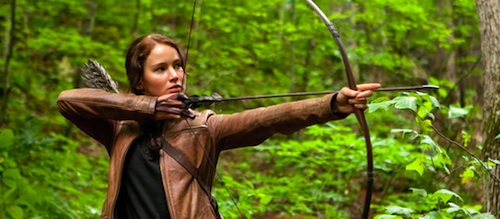
Recent female-starring successes include Alice in Wonderland ($1.02 billion worldwide) and The Hunger Games ($691 million worldwide on a budget of $78 million). Women are also the leads in five of the 10 highest-grossing domestic films of all time, adjusted for inflation: Gone With the Wind (the highest-grossing film of all time, with $1.64 billion in domestic box office), The Sound of Music ($1.16 billion domestic), Titanic ($1.1 billion domestic), Snow White and the Seven Dwarfs ($889 million domestic), and The Exorcist ($902 million domestic). One could also argue that women play a major role in the success of other top-ten grossing films like Dr. Zhivago and The Ten Commandments, with their significant and strong female roles.
But how do we empower more women to direct, write, or star in such blockbuster movies? Further, how do we enable more women to found the next big media company, or come up with the next great tech innovation?
My belief is that women can help themselves achieve these goals by adopting broad and ambitious visions. Further, these visions must be founded on a firm foundation of deep, humanistic knowledge, a willingness to step out from the pack and lead, and creativity in crafting epic, inspiring narratives.
We need to become Renaissance women who are deeply knowledgeable in multiple areas, who can provide vision and leadership across a broad range of fields.
We need more female polymaths who know a lot about a lot, emulating polymaths of the past like Aristotle, Hypatia, Da Vinci, Hildegard of Bingen, Ben Franklin, Marie Curie, Orson Welles, Simone de Beauvoir, or Steve Jobs. These individuals found commonalities between far-flung areas -- science, art, philosophy, music, religion, medicine, diplomacy, movies, feminism, technology -- and in the process created exciting new works that helped push civilization forward.
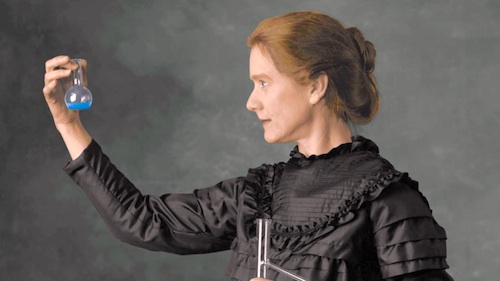
Being a polymath also means being a cosmopolitan. The term cosmopolitan first arose in the Hellenistic Age in the 4th century B.C. It was in the wake of the conquests of Alexander the Great that the diverse peoples of the Mediterranean and Middle East began to apply Athenian ideals of reason and philosophic inquiry to their own lives. As a result, they began to think of themselves not just as the citizens of an individual city-state (or polis), but as citizens of the cosmos 0- literally cosmopolites -- cosmopolitans.
Being a cosmopolitan today means that one takes a humanistic delight in the many cultures and forms of knowledge around the world. It does not mean that one doesn't feel a sense of loyalty to one's own country -- simply that one has a strong interest in the rest of the world and in the common good of humanity.
Nations and peoples flourish when they adopt cosmopolitan ideals. One thinks of Elizabethan England, Gupta India, Renaissance Florence, and Tang Dynasty China at the height of the Silk Road. These were eras when travel and trade linked together many fascinating cultures and peoples, and great art and innovation were the result.
For women today, being cosmopolitan means being open to the world, to innovation, to new possibilities. It means not being held back by outmoded ideas of what a woman's place should be, or what kinds of stories a woman should tell on the big screen.
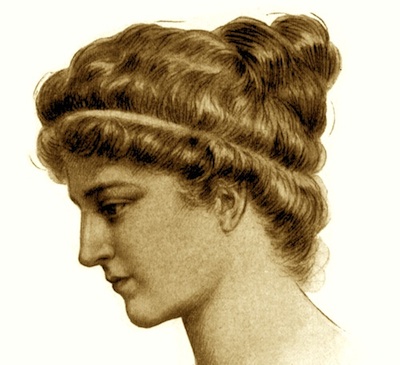
In keeping with this spirit, the audience at Social Media Week LA strongly agreed when I suggested that female filmmakers should not be confined to just romantic comedies and chamber dramas. We should have the opportunity to write and direct grand historical epics, ambitious sci-fi films, imaginative fantasy-adventures, huge comic book movies, sweeping literary adaptations, and much more. It's by leading such big cinematic efforts that women can make their greatest mark in reshaping the culture.
And this reshaping of culture is very much needed today. On a technical level we are more cosmopolitan than ever before, with our greater connectivity to everyone else on the planet (and even the galaxy, with Voyager 1 now leaving the solar system) -- but our thinking is not equally broad-minded and cosmopolitan.
Despite all our advances in digital communication, the peoples of the world are as riven as ever by conflicts between races, genders, religions, and cultures. I was tremendously proud a few weeks ago that America, a nation that I love for its revolutionary ideals of freedom and democracy, would welcome the first Miss America of Indian descent, Nina Davuluri. But then came a heartbreaking wave of racism and bigotry against her. It was heartbreaking because of how hurtful it is to the more than 1.27 billion people of Indian descent around the world -- but also hurtful to the many immigrants of all backgrounds who have built America. If this could happen here, in the most social media-connected, technologically-advanced nation on Earth, then it shows that technology alone is not a panacea for human prejudice.
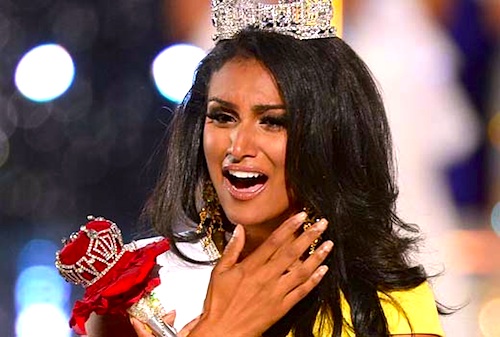
In other words, technology can solve many physical problems -- but it has difficulty solving cultural or moral problems. Technology on its own is only a tool, a vessel -- or, in Cartesian terms, it's all extension, not soul.
And so what else will fill this vessel, but new stories?
This is where women have the opportunity to fill the void in the modern world by telling grand narratives through the powerful tools of digital media. And not only can such stories be told through movies, they can also be brought to the public through TV shows, web series, video games -- and many other forms of storytelling yet to be devised.
I can't help but feel that just as the massive increase in productivity in the developed world in the past century has been due to the large-scale entry of women into the workforce, that any advances in solving racial and cultural problems in the twenty-first century will be due to women fully participating in the culture as artists and storytellers.
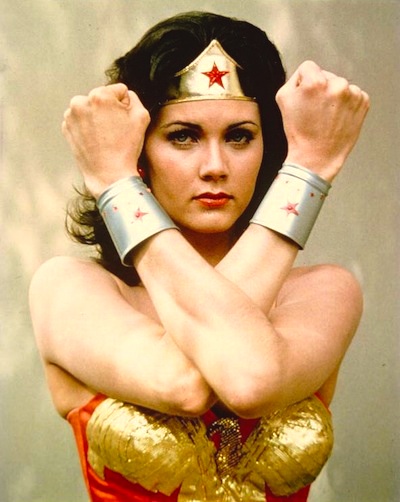
The women in the audience at Social Media Week were ready to take on this challenge. An array of these talented, professional women came up to me afterward and shared their passionate commitment to telling stories that would unite, that would have an impact, that would combine entertainment with high purpose. They had thought that this wouldn't be possible, but now that we had all gotten together and aired our views in public, maybe now we could all make it happen.
This is the time now for women filmmakers to use the powerful tools of digital technology to draw together history and disparate traditions, bind together diverse fields of human endeavor, discover the commonalities between races and religions.
With our desire for connection and meaning, women just may be uniquely situated in the Digital Age to tell the epic stories that can unite humanity.